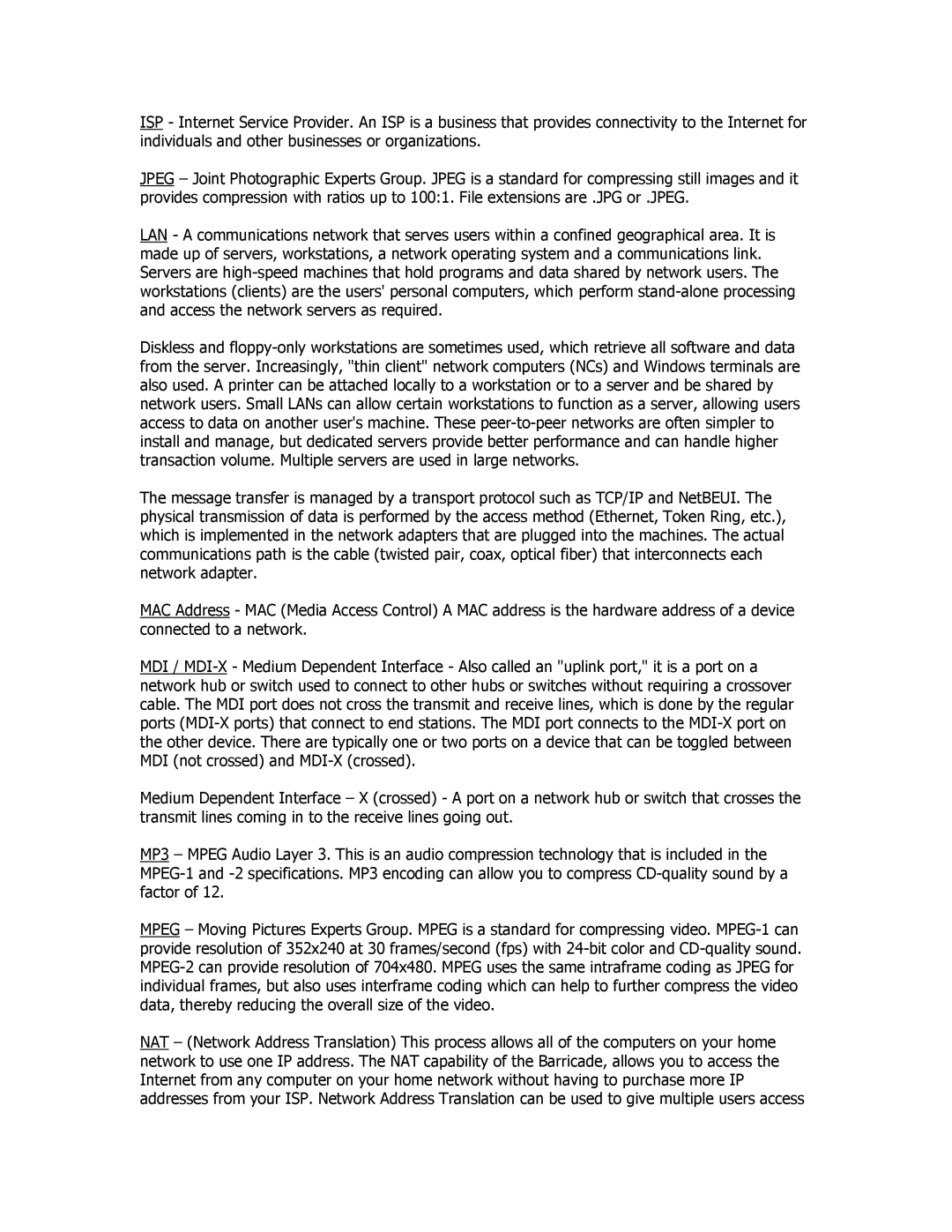ISP - Internet Service Provider. An ISP is a business that provides connectivity to the Internet for individuals and other businesses or organizations.
JPEG – Joint Photographic Experts Group. JPEG is a standard for compressing still images and it provides compression with ratios up to 100:1. File extensions are .JPG or .JPEG.
LAN - A communications network that serves users within a confined geographical area. It is made up of servers, workstations, a network operating system and a communications link. Servers are high-speed machines that hold programs and data shared by network users. The workstations (clients) are the users' personal computers, which perform stand-alone processing and access the network servers as required.
Diskless and floppy-only workstations are sometimes used, which retrieve all software and data from the server. Increasingly, "thin client" network computers (NCs) and Windows terminals are also used. A printer can be attached locally to a workstation or to a server and be shared by network users. Small LANs can allow certain workstations to function as a server, allowing users access to data on another user's machine. These peer-to-peer networks are often simpler to install and manage, but dedicated servers provide better performance and can handle higher transaction volume. Multiple servers are used in large networks.
The message transfer is managed by a transport protocol such as TCP/IP and NetBEUI. The physical transmission of data is performed by the access method (Ethernet, Token Ring, etc.), which is implemented in the network adapters that are plugged into the machines. The actual communications path is the cable (twisted pair, coax, optical fiber) that interconnects each network adapter.
MAC Address - MAC (Media Access Control) A MAC address is the hardware address of a device connected to a network.
MDI / MDI-X - Medium Dependent Interface - Also called an "uplink port," it is a port on a network hub or switch used to connect to other hubs or switches without requiring a crossover cable. The MDI port does not cross the transmit and receive lines, which is done by the regular ports (MDI-X ports) that connect to end stations. The MDI port connects to the MDI-X port on the other device. There are typically one or two ports on a device that can be toggled between MDI (not crossed) and MDI-X (crossed).
Medium Dependent Interface – X (crossed) - A port on a network hub or switch that crosses the transmit lines coming in to the receive lines going out.
MP3 – MPEG Audio Layer 3. This is an audio compression technology that is included in the MPEG-1 and -2 specifications. MP3 encoding can allow you to compress CD-quality sound by a factor of 12.
MPEG – Moving Pictures Experts Group. MPEG is a standard for compressing video. MPEG-1 can provide resolution of 352x240 at 30 frames/second (fps) with 24-bit color and CD-quality sound. MPEG-2 can provide resolution of 704x480. MPEG uses the same intraframe coding as JPEG for individual frames, but also uses interframe coding which can help to further compress the video data, thereby reducing the overall size of the video.
NAT – (Network Address Translation) This process allows all of the computers on your home network to use one IP address. The NAT capability of the Barricade, allows you to access the Internet from any computer on your home network without having to purchase more IP addresses from your ISP. Network Address Translation can be used to give multiple users access
